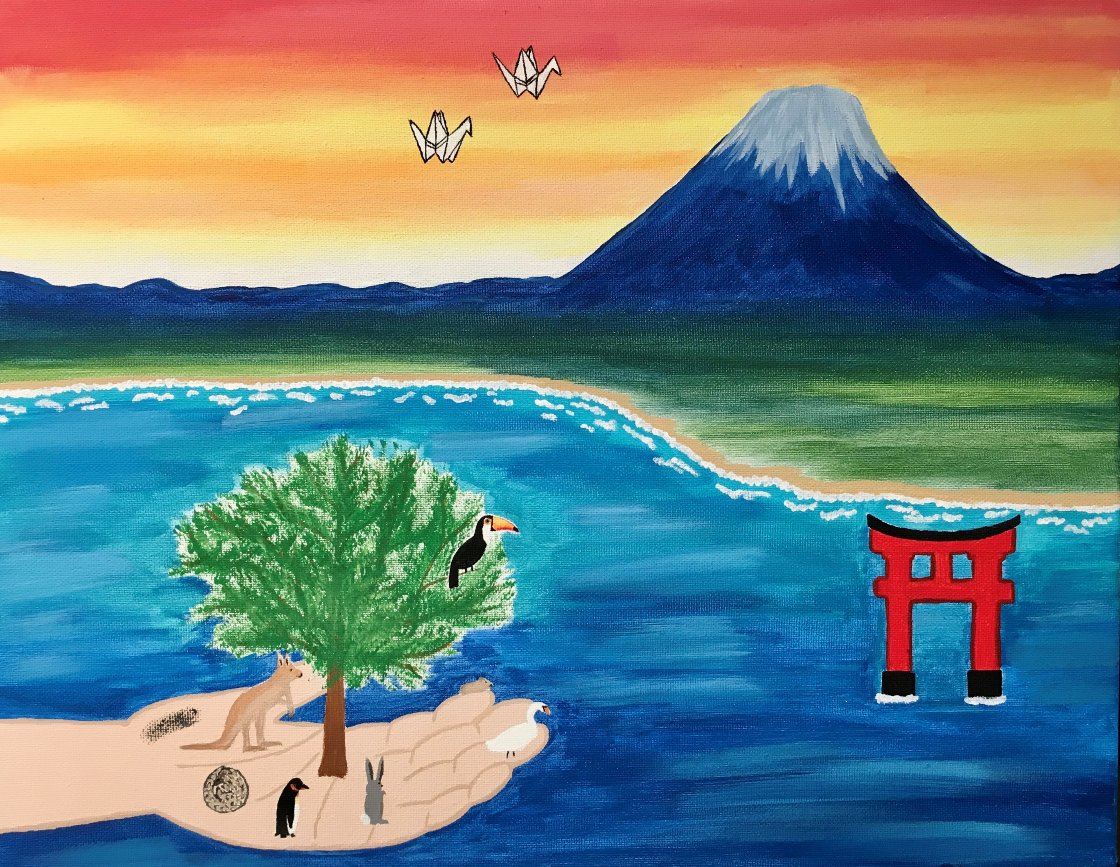Honors current theme
Main Content

Current: Fall 23-Spring 24
Cosmos and Culture
A human being is part of the whole called “universe,” a part limited in time and space. We experience ourselves, our thoughts, and our feelings as something separate from the rest. A kind of optical delusion of consciousness. This delusion is a kind of prison for us, restricting us to our personal desires and to affection for a few persons nearest to us. Our task must be to free ourselves from the prison by widening our circle of compassion to embrace all living creatures and the whole of nature in its beauty. The true value of a human being is determined by the measure and the sense in which they have obtained liberation from the self.
-Albert Einstein
I don't know anything with certainty, but seeing the stars makes me dream.
- Vincent van Gogh
For our theme this year, the University Honors Program is exploring the relationship between culture and the cosmos, the cultural imagination of the universe and the specific histories and forms of knowledge that give it birth. As we prepare for the total solar eclipse in April 2024, the theme has a special significance for us locally. Yet, there is a long history of humans imagining our relationship with those far in space and those in close proximity, such as other forms of life on our own planet. Imagining the cosmos is as much an exercise in science and technological invention as it in world-making and artistic creation. We can ask two fundamental questions. One, who is the “we” who is being constructed in considering the relationship with the cosmos? And, two, how have technological and scientific forays in transforming the human relationship with the cosmos also altered the social and political organization of society?
Upcoming: Fall 24- Spring 25
Play and civilization: History, theory, practice
Humans are playful creatures. Studies have confirmed that play is hard-wired in the human animal; we share with other mammals the propensity to explore our surroundings and interact with others in ways that exceed the immediate needs of life. Chasing, rough and tumble, hide and seek – not only do we observe these playful expressions of our pets, we enjoy them! Play, Johan Huizinga tells us, precedes culture and is a vital basis of human civilization. So many of our activities have the word play at its source – sports, theater, religion, and gamification. Play embodies opposites - you can play with someone or you can be played. And, it seems that our work-obsessed culture has made us desperate to play!
The Honors theme for the coming year is Play and civilization: History, theory, practice. We are looking for seminars that are intellectually adventurous, try new pedagogies, and are able to generate a space for mutual learning that is playful.
Suggested topics may include:
- Play and human evolution
- Play across species
- Philosophies and modes of play across history
- Education and the impulse to play
- Play, alienated labor, and the arts
- Gamification and contemporary life
- Most importantly, your own take on play from your disciplinary perspective
Previous cluster themes



